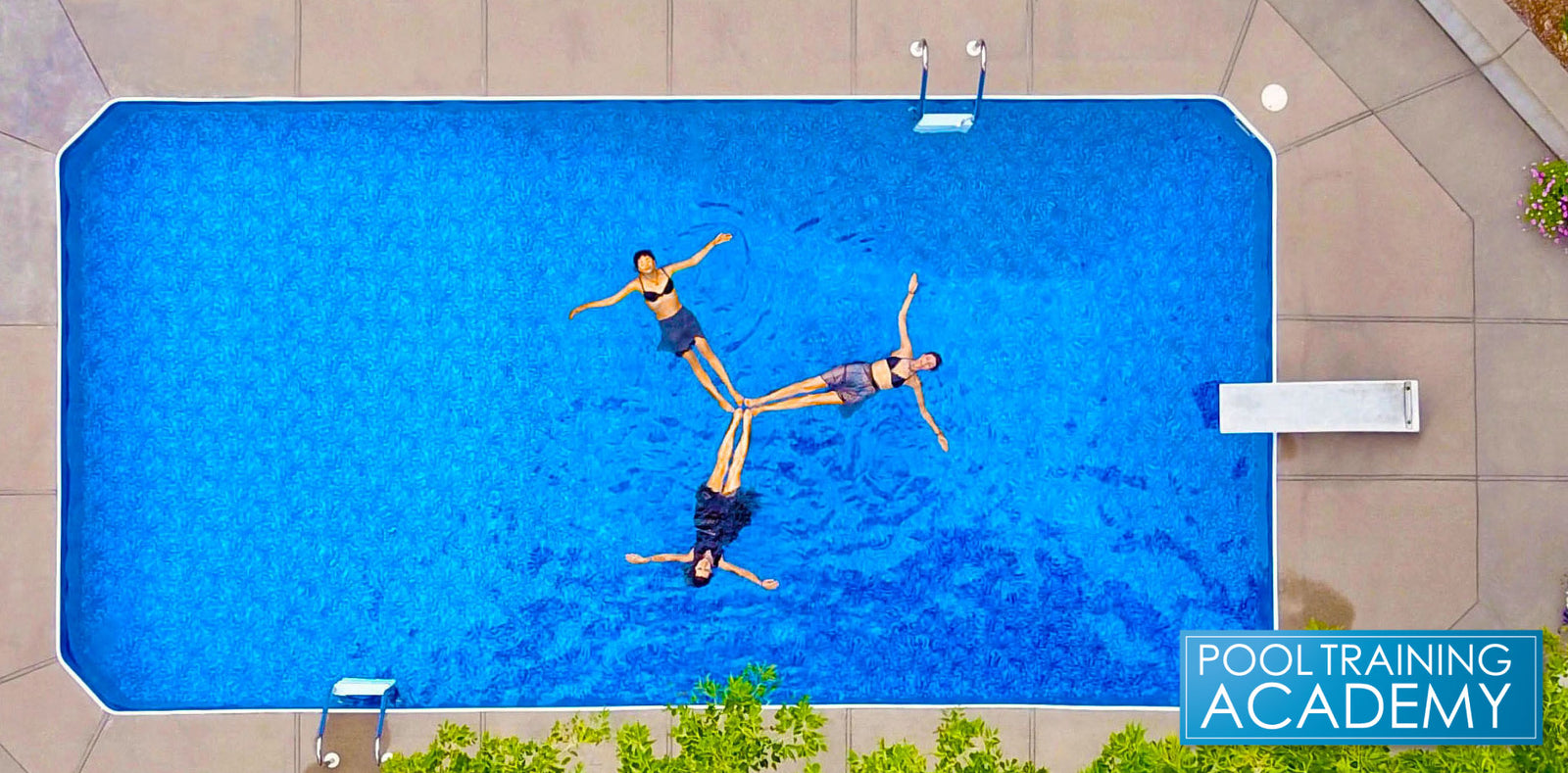
We've all heard stories about the local pool turning someone's hair green, or someone's uncle turning the pool water blue at the family barbecue five years ago because he peed in the pool, but is there any truth to these stories? Do we need to worry that social ostracism is lurking around every chaise lounge, waiting to pounce when we least expect it? Or do we need to wear a shower cap in the pool, just in case? In this article we are debunking the top 5 swimming pool myths.
5. Chlorine Turns Hair Green
This myth has been around since almost as long as humans have been swimming in water. The plain and simple fact is chlorine does not turn hair green. If copper deposits are present in the water they can adhere to the hair follicle and give the hair a green tint to it. This tint can occur in both dark and light hair, but it iis much, much more noticeable in lighter blonde hair. The reason it is more noticeable is because the follicle in lighter blonde hair is actually semi-transparent. When the copper deposit attaches to the follicle, it shines with a brighter green than those with dark hair. So in the end, it is the copper in the water that causes hair to turn green, not the chlorine.
4. Salt Pools Don't Use Chlorine
Salt pools are a wonderful, if finicky, invention of modern man. They offer a silky-smooth swimming experience that doesn't leave your skin dry like a traditionally chlorinated pool. It feels so good, because they don't use chlorine to disinfect, they use salt instead, right? Wrong. Salt does not disinfect your water, chlorine does. Wait, I have a salt pool though, that means there's no chlorine, doesn't it? Again, no. You see, a salt pool disinfects when the salt water from your pool passes through an electrical generator. This generator and salt water combo goes through a process called electrolysis to convert that salt content in the water into sodium hypochlorite, aka chlorine.
3. Chlorine Smell = Too Much Chlorine
Nothing brings back childhood memories of summer fun quite like a hefty whiff of that pungent chlorine smell. We tend to use that chlorine smell as a gauge for how safe it is to swim in a pool also. The stronger the smell, the more likely the pool is to have chlorine in it, right? Not exactly. This one is actually kind of a bit complicated, so I'll try to make it as simple as possible. There are two types of chlorine:
- Free Chlorine (Chlorine available for killing and inactivating pathogens in the water)
- Combined Chlorine (Chlorine that has already killed or inactivated pathogens and, therefore, is no longer able to kill or inactivate anymore. This is essentially useless chlorine)
The smell, our childhood scent is actually that of the latter type of chlorine, combined chlorine. This is the chlorine that has already done its job of killing and is no longer able to keep fighting. We can think of the chlorine smell as the smell of dead chlorine. So next time you go to the pool and are hit with a wall of chlorine smell, you can know that the pool isn't overly chlorinated, instead, its likely overly urinated in and the free chlorine is fighting like crazy to neutralize that urine. Sorry to burst your bubble.
2.Chlorine Burns Eyes
Poor old chlorine always gets the blame when it comes to eyes burning in the water, but really, chlorine has nothing at all to do with burning eyes in swimming pools. The true culprit who is burning your eyes every time you go for a dip is the water's pH level. That's right, Chlorine is off the hook for this crime. Your eye's pH level is roughly 7.5 so any water that gets into your eye that is above or below that level is going to clash with the natural pH of your eye and cause them to become irritated and inflamed. So next time your eyes are dry, red, and itchy, check the pH and you'll see that it is out of that 7.5 zone. Chlorine, you're free to go.
1. Peeing In The Pool Turns The Water Blue
We've saved the best for last with this one. Every child and adult alike has a fear in the back of their mind that a little voiding of the bladder inside the pool might evoke a chain reaction that causes the water to turn a bright, brilliant blue with a trail of that blue devil to lead directly to you! We've seen this happen in movies like Grown Ups, and we've certainly heard rumored stories about so-and-so's friend turning the community pool blue when they peed in it. Plain and simple, this is a myth. A complete and total myth. There is no chemical, nor has there ever been a chemical that had the ability to turn pool water blue if you peed in it. To be honest, even if there was a chemical to do this, it would likely not be used as the water would be turning blue constantly due to how many people truly urinate in pools. So, next time you've gotta go, there is no reason to fear the Blue Dye of Doom, but its still best to just go to the bathroom instead.
Fight Against Famous Pool Myths By Getting CPO® Certified Today!
Operating a swimming pool is simply not simple, which is why many of our pool myths exist to this day. To safely operate and maintain an aquatic facility it truly does take more training than you can find on YouTube or read in an article like this. Thankfully you have options to help you become more knowledgeable about how to keep your swimmers safe. One of these options is taking a CPO Class with Pool Training Academy. Becoming CPO® Certified is one of the best ways to truly become a pool expert. And in many states this certification is required to operate a pool or spa. Pool Training Academy is the #1 CPO® Certification provider in the world and our classes are specially tailored to be fun, engaging, and most of all relevant to your needs. Click here to sign up for the next class in your area or to take a completely online course and learn everything you need to know to make your pool the best it can be.




Leave a comment (all fields required)